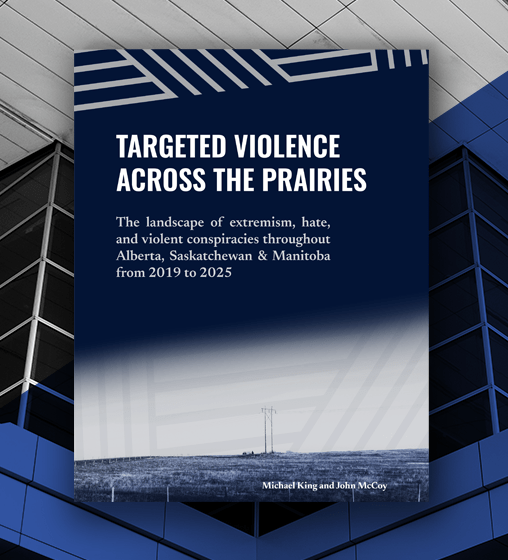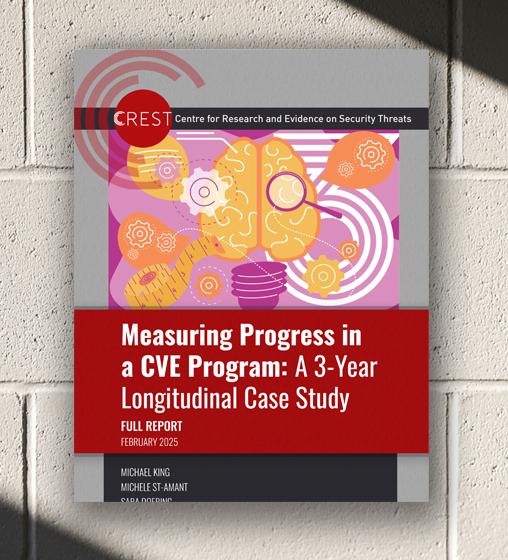Our Executive Director, John McCoy, co-authored this opinion piece on tackling polarization and xenophobia in Canada.
Original Article
Published by the Hill Times on February 26, 2024.
Three overlapping issues have coalesced and formed a growing threat to democratic countries. Social polarization, xenophobia, and a growing openness to the use of violence as a means of solving disputes together have the ability to undermine our social cohesion, our faith in our political systems and institutions, and—in rare instances—generate divisive acts of violence.
The attack on Edmonton’s City Hall last month is an apt example of the volatile results of this trend. Bazhani Sarvar, a 28-year-old man, allegedly entered the building with a rifle and homemade explosives. While we do not yet have the benefit of a full account of his motivations, his social media posts are revealing. His messages draw together disparate themes: anger over international conflict is mixed with a range of polarizing domestic issues ranging from inflation and immigration to “wokism.” Views that are firmly entrenched in polarized public debates and 30-second social media clips.
While these grievances appear muddled, his choice of target was not. Threats directed at public institutions at the core of our democracy are an increasingly common feature of contemporary violent extremism.
Canada faces an uphill battle in addressing these issues in a manner that preserves our commitment to liberal democracy and freedom of expression. Fortunately, this country is well-positioned to cement our reputation as an innovator in preventing and countering hate-motivated or targeted violence. The efforts in recent years from practitioners—e.g., social workers and mental health professionals—researchers and the public services have built a strong evidence base from which progress can continue to be made. Sustained progress will require all orders of government, community-based organizations, and practitioners to double down and scale up current efforts.
At the centre of the made-in-Canada approach is Public Safety Canada’s Canada Centre for Community Engagement and the Prevention of Violence. It has funded research and prevention efforts across Canada since 2017. Its support of programs has resulted in collaborative, evidence-based research projects and effective frontline prevention programs.
Collaboration between human service practitioners, provincial health and social services, and relevant police of jurisdiction has created diversionary programs where individuals coming to the attention of law enforcement, entering probation, or parole can be directed to multi-disciplinary intervention and rehabilitation programs. Through this approach, stakeholders, including law enforcement, can work in parallel to reduce the risk of violence.
These efforts aim to reduce criminality and recidivism, and operate with the understanding that individuals who receive comprehensive psycho-social supports—such as clinical counselling and access to services ranging from addiction supports to vocational training—will experience a commensurate reduction in negative behaviours.
Non-government programs like the Organization for the Prevention of Violence’s Evolve program operating in the Prairies, and the Ontario-based ETA program both have an established track record of successful interventions. In British Columbia and Quebec, the provincial governments are responsible for delivering similar psycho-social supports, such as B.C.’s Shift program. The Canadian Practitioners Network, based in Quebec, has brought academic evidence and national co-ordination of practitioners.
In an era where there are growing expectations that publicly funded projects show outputs and outcomes, the comprehensive data our programs are generating is encouraging. We are demonstrating that efforts to reduce the risk of violent extremism through psycho-social intervention can work. Collectively, the ETA and Evolve programs have served approximately 300 individuals, impacted by violent belief systems, homicidal ideation, and grievances.
The impact of projects designed to prevent the emergence of divisive and hateful attitudes is harder to measure. However, what is clear is that tackling polarization and xenophobia requires a non-partisan, depoliticized, and evidence-based approach.
This particular challenge is deeply embedded in the ways in which Canadians access and process information, technology, and social media. Subsequently, working with technology companies cannot be overlooked in our attempts to address root cases. The most productive prevention efforts will likely take place at the municipal level and in schools where there’s a need to educate the next generation on how to navigate data and critical thinking in the era of AI, deepfakes, and misinformation. A positive example of current efforts in prevention is CIVIX Canada which has emerged as an innovative non-governmental group creating resources for teachers and students to navigate the online space in a way that evaluates the credibility of information.
While these challenges are complex, Canada is well-positioned vis-à-vis many western democracies. Indeed, there are exportable lessons from our approach with countering hate motivated violence and polarization. The shortcoming remains the scale and sustainability of these efforts. Existing programs require increased resources to address upcoming challenges. The Canada Centre, which funds, co-ordinates, and builds capacity for all the projects referenced above, is an essential component in our success as is increasing collaboration among civil society and public agencies like law enforcement, prosecutors, and probation. Given the demand for this service among stakeholders and participants these programs should be viewed as providing a core function within social and healthcare systems. Modest public investment will support existing evidence-based efforts, and better position Canada to weather the challenges to come.
John McCoy, PhD, is executive director of the Organization for the Prevention of Violence. David O’Brien, CYW, CYC, BA, MACP, MBA, RP, is the director of mental health at Yorktown Family Services.
McCoy, John, and David O’Brien. “Opinion: It’s time to double down on our efforts to counter violence and polarization in Canada.” The Hill Times, 26 Feb. 2024. https://www.hilltimes.com/story/2024/02/26/its-time-to-double-down-on-our-efforts-to-counter-violence-and-polarization-in-canada/411439/



